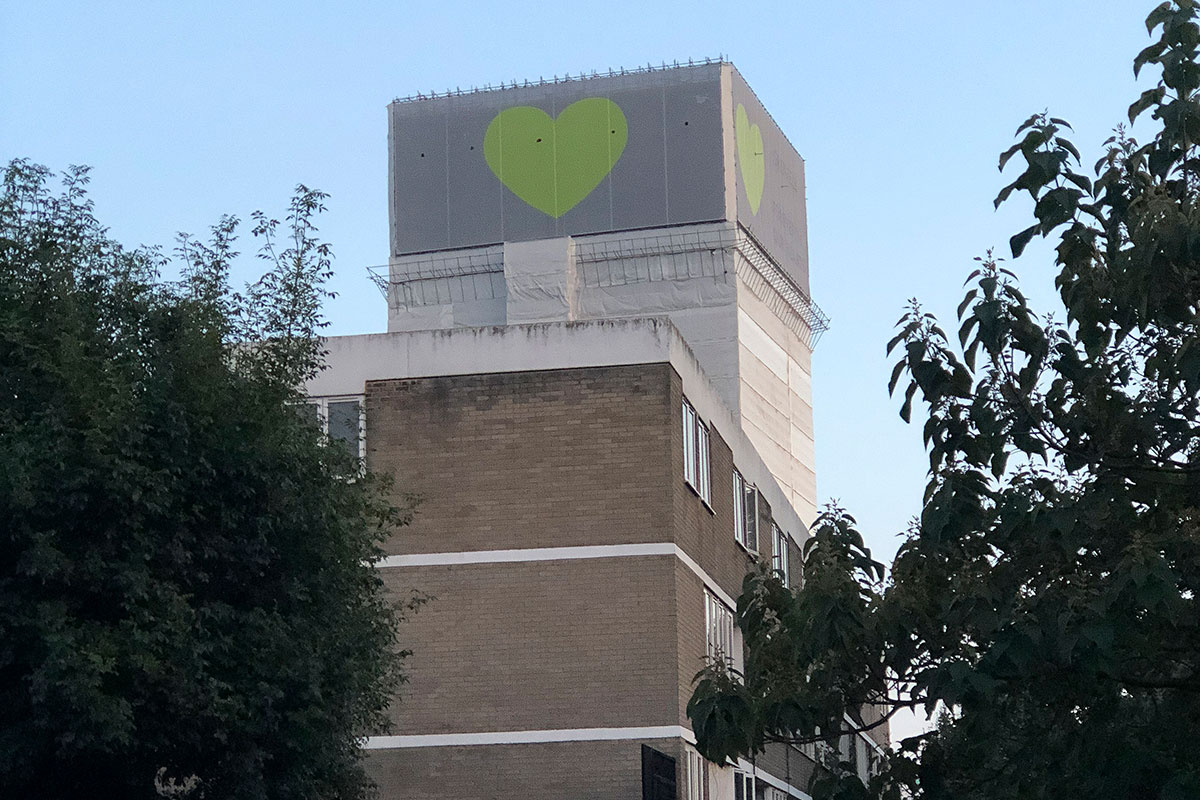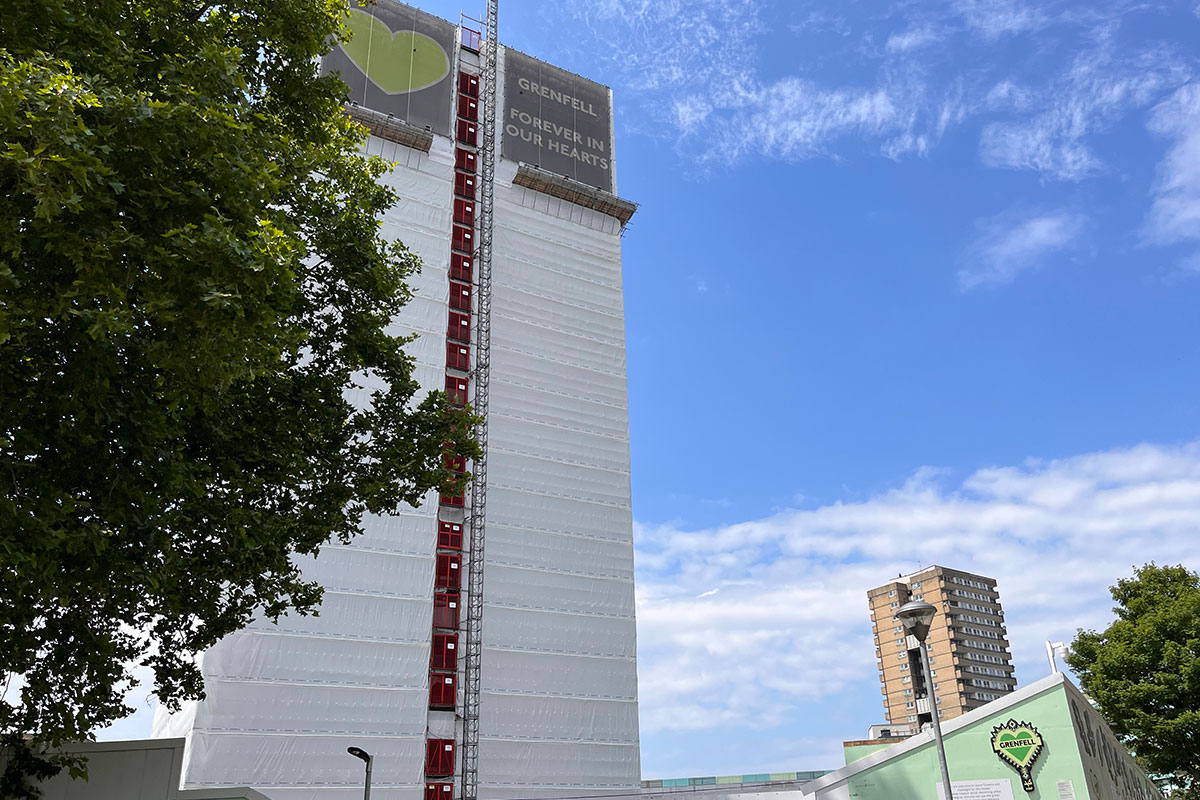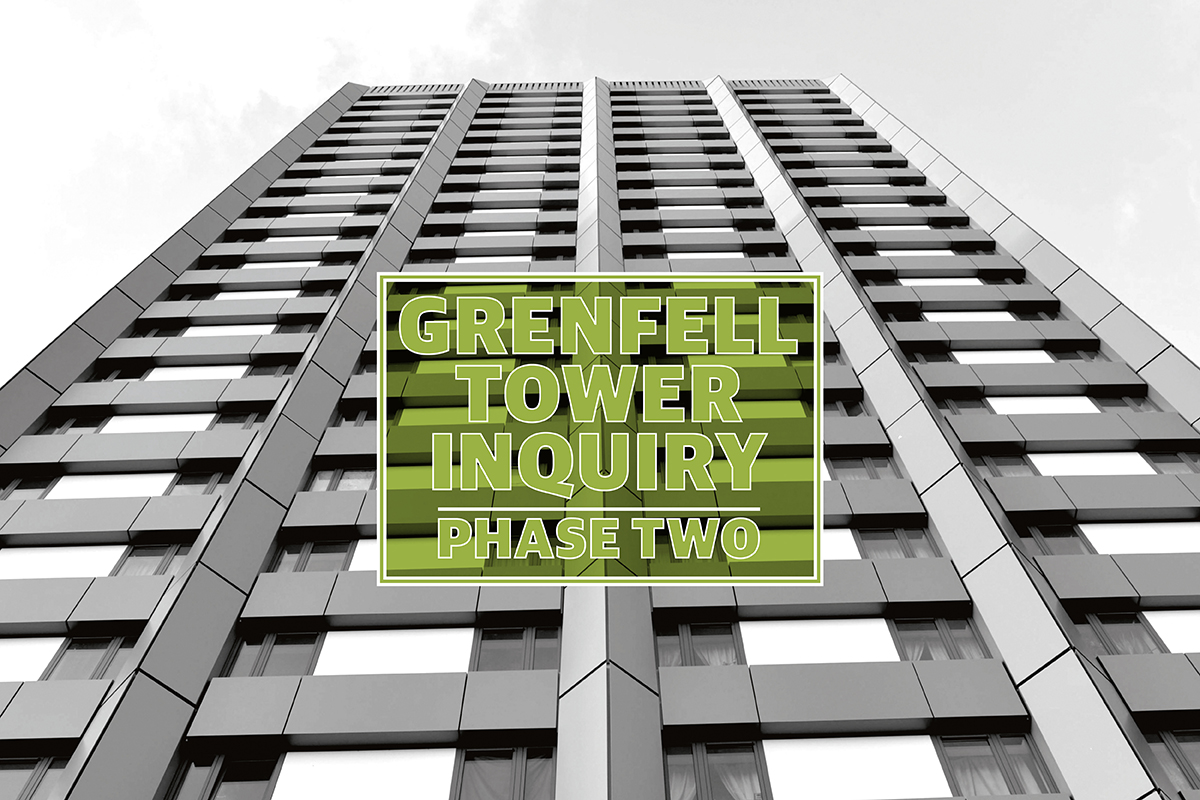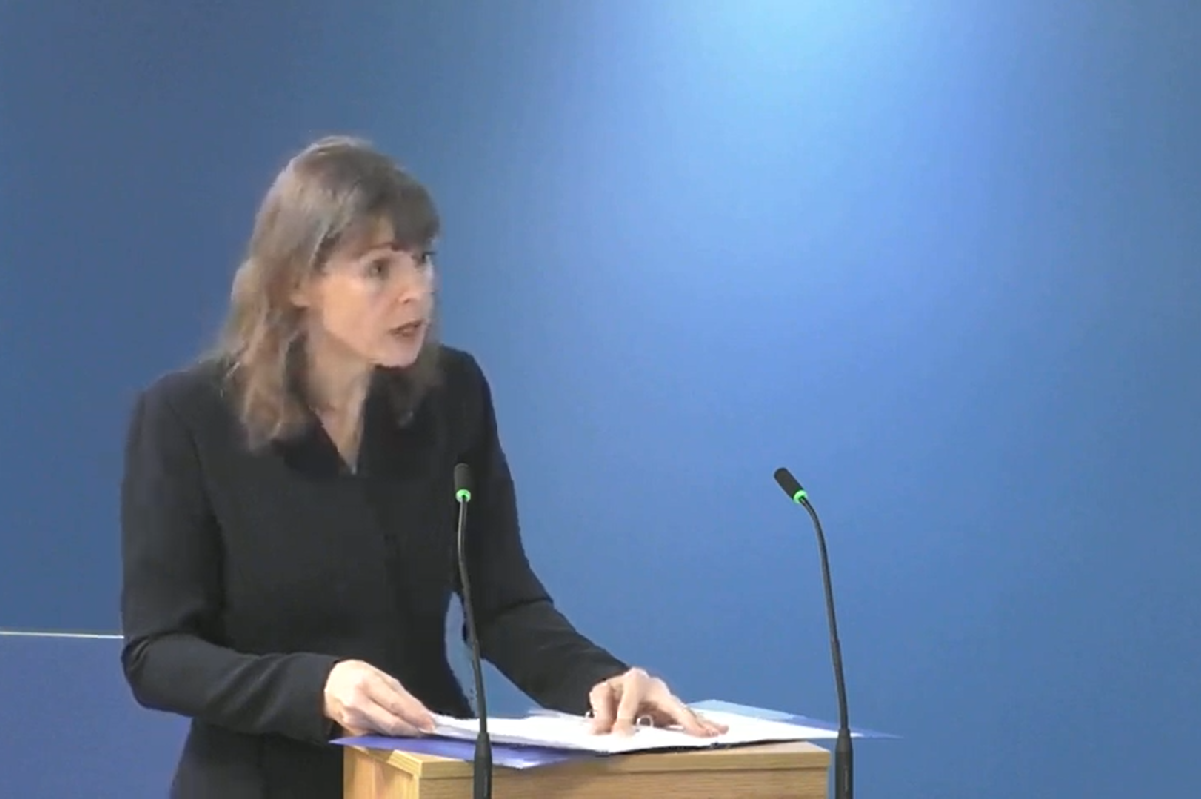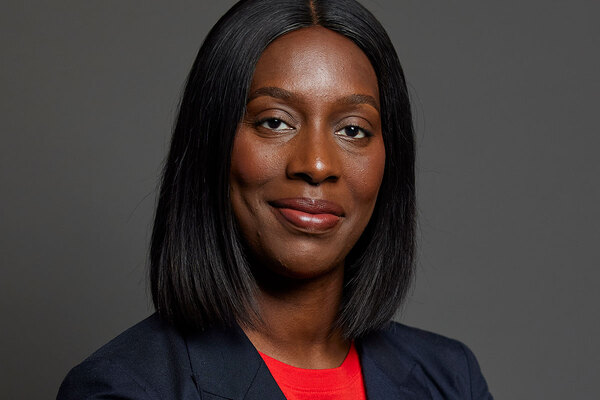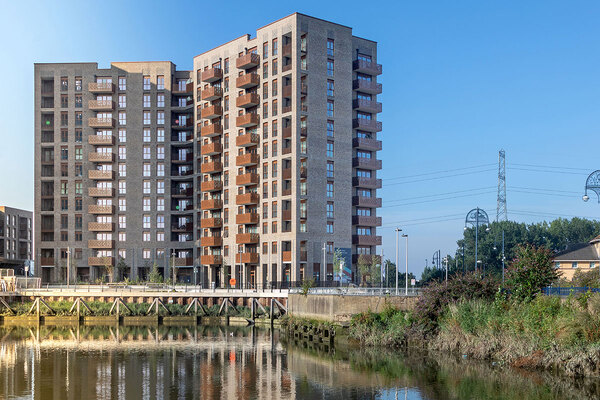You are viewing 1 of your 1 free articles
Government privately ruled out implementing Grenfell Inquiry recommendation before completing consultation, court hears
The government decided to reject a key Grenfell Tower Inquiry recommendation on evacuation plans for disabled people nine months before it told the public and without completing its consultation, the High Court heard on Tuesday.
According to lawyers representing the Cladding Leaseholder Disability Action Group (Claddag), the government had already decided not to go through with mandating personal emergency evacuation plans (PEEPs) for disabled people in high-rise buildings as early as September 2021, despite not having completed a consultation on the decision.
It emerged that by 22 September, an options paper to then-fire safety minister Lord Greenhalgh did “not even include delivering the PEEPs recommendations… in full as an option for consideration”.
This was confirmed by internal records on the decision-making process disclosed by the government to the court.
It also emerged that Lord Greenhalgh, an unelected peer appointed to the role by former prime minister Boris Johnson, asked that the decision not be communicated to the public in February.
Instead, he wanted to wait until the government could publish a new consultation “exploring alternative measures”.
Raj Desai, the barrister representing Claddag, said: “By 22 September 2021, an options paper to the minister did not even include delivering the PEEPs recommendations… in full as an option for consideration, merely noting that problems over practicality/deliverability, proportionality and affordability, and challenge to the safety case had been covered in an earlier 31 August 2021 submission.”
The court heard that an email with Lord Greenhalgh’s response on 23 September stated that what would later become the Emergency Evacuation Information Sharing (EEIS) proposal was “the only credible way forward”.
By 3 December 2021, Home Office officials were engaging with local authorities and housing associations to see if there are examples of more “light-touch PEEPs approaches”.
On 22 February 2022, permission was sought from Lord Greenhalgh to publish the PEEPs consultation response and to publicly rule out mandating PEEPs.
But two days later, he disagreed. Instead, he wanted to wait until the government could publish the EEIS consultation, in which it would commit to “exploring alternative measures”.
“It went on to state that the minister was… ‘very clear that he will not at this stage agree to a third PEEPs consultation,’” according to written submissions from Mr Desai.
The intention was that such plans could be referred to in guidance as best practice examples, rather than as mandating their implementation via legislation.
In September, Claddag was successfully granted a judicial review of the Home Office’s decision not to implement a key recommendation from the Grenfell Tower inquiry, which would mandate PEEPs for disabled people in high-rise buildings.
A PEEP is for a person – such as someone with impaired mobility – who may need assistance to evacuate a building or reach a place of safety in the event of an emergency.
Following the first phase of the inquiry, chair Sir Martin Moore-Bick recommended that building owners should be required by law to develop a Plan B in case it becomes necessary to implement an evacuation.
Included in this was a recommendation that residents with disabilities should be provided with PEEPs to facilitate their evacuation.
But speaking during the third reading of the Building Safety Bill in early April, Lord Greenhalgh said a second consultation involving the evacuation plans, which ran in July 2021, “made clear the substantial difficulties of mandating PEEPs in high-rise buildings around practicality, proportionality and safety”.
The Grenfell fire killed 72 people, 15 of whom were disabled, meaning it killed 41% of the disabled residents of the tower. None of those disabled people had been provided with PEEPs.
In a consultation response document published on 18 May, the Home Office said it did not believe mandating PEEPs was practical, proportionate or safe, and that disabled residents should either stay put or rely on rescue by firefighters.
Instead of implementing the PEEPs recommendation, the government launched a new consultation on EEIS, which looks at sharing the location of disabled residents with fire services.
But even this will only apply this to buildings known to have serious fire safety issues under its proposals.
The stay put policy, which was in place the night of the Grenfell Tower disaster, has been widely criticised.
One fire safety expert told the inquiry that the UK was “truly an outlier” in not providing a Plan B should it prove untenable.
The judicial review was brought by two founding members of Claddag, Sarah Rennie and Georgie Hulme, and was granted on five grounds:
- Failure to have regard to mandatory material considerations
- Breach of legitimate expectation as a result of a failure to consult on departure from the PEEPs recommendation
- PEEPs consultation process so unfair as to be unlawful
- Breach of public sector equality duty in the Equality Act
- Breach of the European Convention on Human Rights
The government is arguing that it has not yet made a decision on mandating PEEPs.
But Mr Desai said that position is “untenable” as there is “no getting away from the fact that the proposals fundamentally depart” from the PEEPs recommendation.
“Keeping the door open to voluntary adoption of PEEPs by responsible persons… cannot be conflated with openness to mandating a legal duty on [the responsible person] to put in place PEEPs,” he said.
In a written case outline, Mr Desai told the judge: “Seventy-two people died in the fire at Grenfell Tower on 14 June 2017, the greatest loss of life in a residential fire since the Second World War.
“Those who died were disproportionately persons with disabilities whose ability to self-evacuate was compromised.”
He went on to say that the government’s failure to implement PEEPs “conspicuously fails to identify and grapple with the public safety imperative” for the recommendation.
He added: “Still less does it seek to grapple with the magnitude and gravity of the risks associated with the situations in which residents need to escape.
“The defendant is notably unable to point to any evidence that the decision-maker did grapple with any of this.”
Two of the grounds for the judicial review deal with a failure to properly consult on the decision not to mandate PEEPs.
Mr Desai argued that where a public authority has given a “clear and ambiguous commitment” to adopt a particular procedure and then thinks about departing from that commitment, it is legally obliged to offer a “fair opportunity” to allow people to comment on it and the reasons for it.
The government said it would implement in full all the recommendations from the first phase of the Grenfell Tower Inquiry.
“When one has those repeated assurances that we have seen, we are indeed in that territory,” Mr Desai said.
He said the PEEPs consultation did not involve consulting on a proposed departure from the recommendations and “did not offer an opportunity to address the reasons for any proposed departure”.
“It is wholly unfair and disproportionate for the defendant to defeat the legitimate expectations of consultation in the way that has occurred.
“The defendant must therefore rely on the EEIS+ consultation to discharge the claimants’ procedural legitimate expectations.
“However, the EEIS+ consultation does not achieve this. A decision had already been made to depart from the PEEPs recommendations and to move onto consideration of alternatives,” he said.
Mr Desai told the court that the issue is not whether the EEIS+ consultation is “a sham or done in bad faith”.
“The public law problem is that an after the event call for evidence in the EEIS+ consultation does not discharge the claimants’ procedural legitimate expectations,” he said.
On breaching the Equality Act, Mr Desai stated that the equality impact assessments (EIAs) relied on by government “fail to identify and analyse the… equality implications of the absence of any escape plan for disabled residents in stay put buildings”.
He added: “By not identifying and analysing the situations in which residents need to evacuate a stay put building in response to fire in this way, the defendant failed to identify the central relevant disadvantage which the PEEPs recommendations are directed to remedying for those unable to self-evacuate, let alone to grapple with the extent of the adverse impact on the statutory goals of failing to do so.”
The court also heard that the government failed to seek input from relevant experts on the reasons it gave for rejecting the PEEPs recommendation.
Mr Desai said that Lord Greenhalgh committed to getting input from fire safety experts Professor Ed Galea and and Dr Barbara Lane in a letter on 7 January 2021.
However, neither were consulted on the concerns around safety, practicality and proportionality relied on in taking the government’s decision.
“It’s inexplicable that this was not done,” Mr Desai told the court.
Mr Desai also argued that no steps were taken to mitigate the adverse equality impacts of the decision.
He added that the decision breaches the duty to protect life and the duty of non-discrimination under the European Convention of Human Rights.
The hearing continues on Wednesday, when the court will hear from the government.
Sign up for our fire safety newsletter
Already have an account? Click here to manage your newsletters
